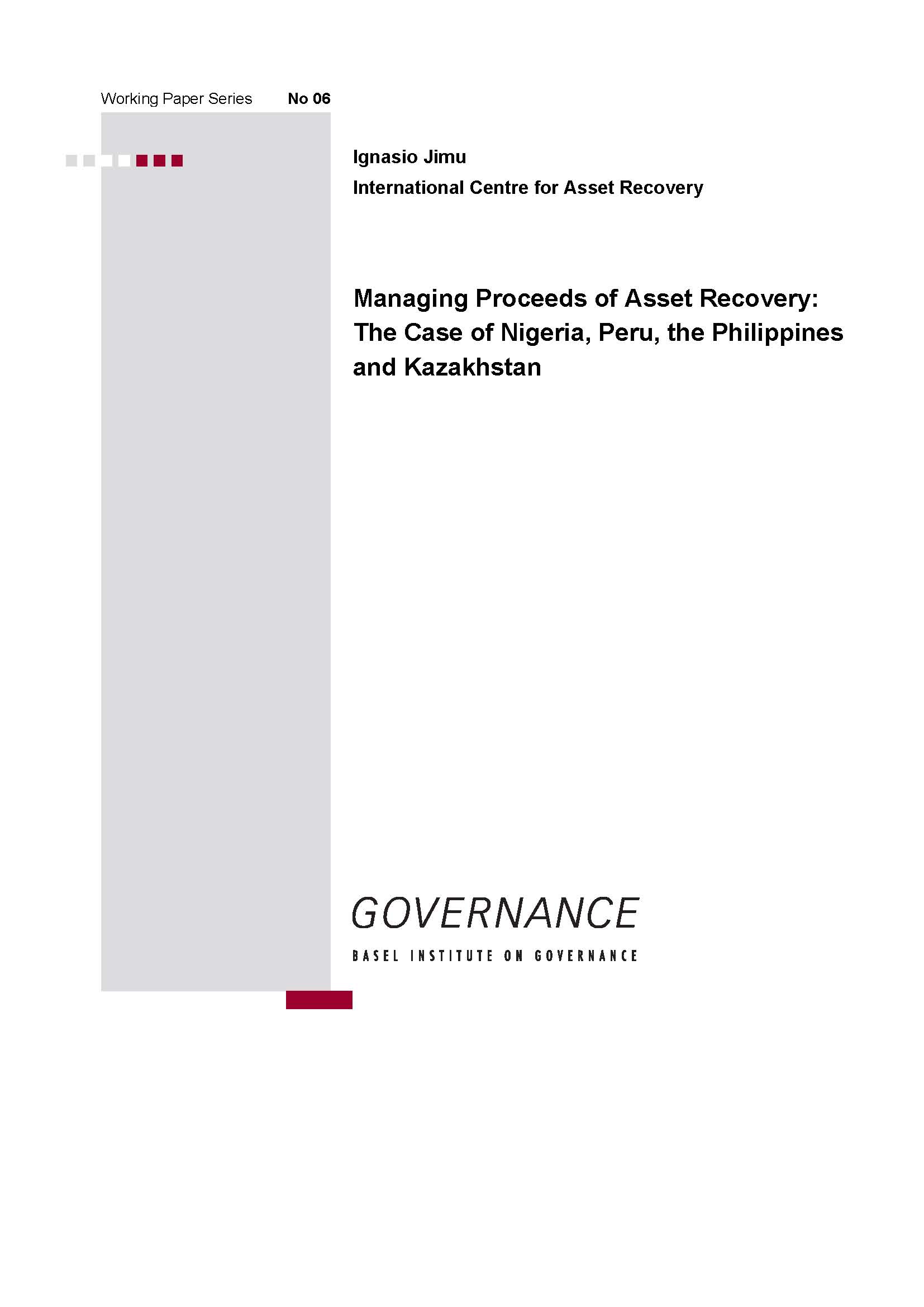Working Paper 6: Managing proceeds of asset recovery
The case of Nigeria, Peru, the Philippines and Kazakhstan
Keywords:
asset recovery, asset managementAbstract
This paper looks at the use of proceeds of asset recovered from Sani Abacha, Vladimir Montesinos, and Ferdinand Marcos and their families. It will also briefly address a much more recent case involving Kazakhstan.
Repatriation of stolen monies makes available additional resources for development activities. The challenge is to ensure efficient, accountable and transparent use of such assets, given states may lack capacity or political will and that corruption may be prevalent at various levels of government.
Transparency allows for better utilisation of recovered assets, and better targeting of resources into sectors that have potential to benefit the victims of corruption, who happen to be mostly the poor. Lack of effective follow up mechanisms may lead to the inappropriate allocation of resources into sectors that have little effect on alleviating poverty.
The cases under review here offer lessons on how to manage repatriation and utilisation of proceeds of asset recovery. Further lessons relate to the participation of third parties and the benefits of making the results of the entire process public.

Downloads
Published
How to Cite
Issue
Section
License
Copyright (c) 2009 Basel Institute on Governance

This work is licensed under a Creative Commons Attribution-NoDerivatives 4.0 International License.

